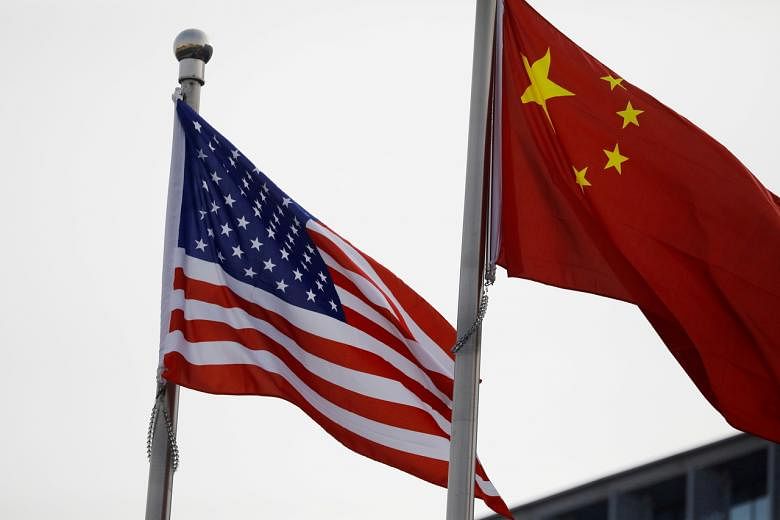BEIJING - The foreign ministers of China and the United States on Friday (May 7) presented divergent worldviews during a United Nations Security Council (UNSC) event, highlighting the yawning gap between both countries as diplomatic tensions continue to simmer.
Chinese Foreign Minister Wang Yi and US Secretary of State Antony Blinken were joined at the virtual session by several other foreign ministers as they debated how to strengthen the international system while addressing the growing regional and global crises.
China, which holds the rotating presidency of the Security Council, reiterated its calls for multilateralism based on a set of rules agreed upon by all nations and to abandon sanctions.
"They are not a patent or a privilege of the few. It must be applicable to all countries. There should be no room for exceptional or double standards," said Mr Wang, without mentioning any country.
There should be a focus on actions, not rhetoric, and "major countries" should lead by example by providing global public goods, he added, an oblique reference to the US delay in exporting vaccines.
The UN needs to continue to promote multilateralism and preserve peace through dialogue and consultation, while resolving differences and conflicts through mediation and other means, Mr Wang added.
"Sanctions and other enforcement measures should be used only after all other non-enforcement means are exhausted, and (only) for the purpose of seeking political settlement," he said.
"All unilateral moves that circumvent the Security Council are illegitimate and must be abandoned."
The US and European Union have levied a series of sanctions on Chinese officials for human rights abuses in Xinjiang and Hong Kong.
Mr Blinken in his speech sought to reassure allies that Washington still sees the organisation as a critical player in the rules-based order.
Previously, the Trump administration's "America First" approach saw it clashing frequently with the UN and even pulling out of the World Health Organisation and the Human Rights Council.
The US is now committed to "defend, uphold and revitalise" the international order it helped built, Mr Binken said, committing to "push back forcefully" when countries violate the balance.
"The US is not seeking to uphold this rules-based order in order to keep other nations down. The international order we helped build and defend has enabled the rise of some of our fiercest competitors," he said, calling human rights and dignity the core of such a system.
He added: "The Universal Declaration of Human Rights begins with the word universal, because our nations agreed there are certain rights to which every person everywhere is entitled.
"Asserting domestic jurisdiction doesn't give any state a blank cheque to enslave, torture, disappear, ethnically cleanse their people, or violate their human rights in any other way."
But both officials pointed to the coronavirus pandemic, vaccines and climate change as issues countries can find common ground to work on.
The speech comes after a meeting of Group of Seven leaders in London this week, where officials singled out China for a raft of actions ranging from human rights abuses to its actions against Taiwan. Beijing has reacted angrily, criticising "clique politics" and urging Western nations to stay out of its affairs.
China on Thursday cancelled a high-level economic dialogue with Australia amid strained ties while expressing its displeasure at Canberra cancelling two Belt and Road deals. Its diplomats have also lashed out at New Zealand after lawmakers declared human rights abuses are occurring in the western Xinjiang region.
China's UN representative Zhang Jun took over the UNSC presidency this week by saying he wants the body to focus on the coronavirus pandemic, economic challenges, and climate change - areas which the US largely says it can reach common ground on with Beijing.


